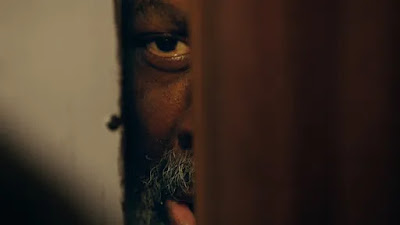Stuck with a visibly lower budget than the upwardly mobile Coogler, Midell doesn't budge much from his one primary location, but he uses the limited means he has to pin down an altogether damning set of circumstances: for starters, this grotty-looking apartment block seems no place for a seventysomething veteran with health issues to be living unsupervised in. The cops showing up there don't immediately strike the eye as hellhounds, and at least one of them - a former middle-school teacher, played by the film's editor Enrico Natale - seems the kind of level-headed problem-solver any community would want on its payroll. Yet there's only a few more years of service separating him from the ingrained cynicism of his colleagues, who spend the bulk of these ninety minutes jumping to tragic conclusions, and misinterpreting self-defence as resistance or aggression. A smaller, more self-contained proposition than Fruitvale Station, this Killing is fundamentally about entrenchment: everybody on screen is fighting a war they cannot win, and from which anybody would be lucky to emerge alive. What Midell impresses upon us as the film proceeds is that this is asymmetrical warfare. One side has all the force and resources; one has but perishable skin and bones. By the end of the movie, it's seven or eight against one, which is no odds at all, really. The story has likely been thumped up in translation: the sound design alone could give you PTSD, the relentless knocking on Chamberlain's door akin to cannon fire. Yet it was doubtless pretty thumping to begin with, and proves all the more concussing - even harder to get your head around - the closer we are to it. As it is, we're lucky to emerge from this telling with just a headache and a heavy heart, and a greater understanding of what people mean when they say "defund the police". What they're calling for - and it's not much, in the sorry scheme of things - is a fairer fight.
The Killing of Kenneth Chamberlain is now streaming via Channel 4 and Prime Video.

No comments:
Post a Comment